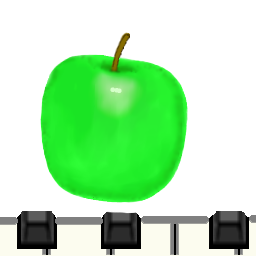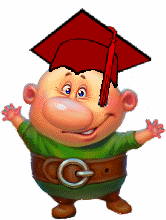Preparatory A (from 2+). Lesson 39

Your FREE Demo version is here
Your full version access is here
How is your experience? Our training moving towards the end and in few weeks you are going to have finals for this course. Do you feel more confident? Do you see now that teaching toddlers in fact is fun and productive activity? Share your thoughts with me!
In our Pedagogy class today we are going to talk about:
Initial Stages of Attention Development with Hiner Method
We already learned that playing the piano with music notation is a complex skill. It includes the ability to see the notes and play them with both hands.
I. Right Hand, Left Hand, and the Grand Staff
The Grand Staff has two clefs. Humans have two hands. Treble clef is on the right, and bass clef is on the left.
First we build the awareness about that. We may ask a child to raise his right ("green") or left ("brown") hand. With the help of this simple exercise, students can usually memorize the names of the hands very quickly.
We may use green and brown bracelets to help focus the student's attention on the music stave in horizontal position.
In the future, the skill of interacting with music stave both vertically and horizontally will become useful not only in music, but also in the study of geometry, at the least.
II.
Introducing Student's Attention to the Names of Notes on Speech and Tactile Level
Each note has a name. We can pronounce the names of the notes. Notes can be touched with the fingers of the right and the left hand.
Keys have the same names as notes. Every note has its own «house» - its own key. Guess Key is a module with the help of which your student can learn to see the keys one by one and study piano geography. Picture and sound help focus visual attention on each key.
Guess Key is a module with the help of which your student can learn to see the keys one by one and study piano geography. Picture and sound help focus visual attention on each key.
With the help of the Guess Key Module you can measure the child’s progress with precise numbers. You can pause the game by pressing F1 key to record the result. You can track your child’s progress by the increase in the number of points.
III.
Keys and notes are arranged in particular orders. This is why we learn to memorize music notes sequences.
This exercise will assist the visual focus in locating a particular key or note in a row more quickly.
Music notes sequences are better perceived first by ear (onomatopoeic skill) with the help of a special song in a form of a rhyme. With the song as a framework, the student begins to put together card rows.
This type of work gradually develops into the ![]() Note Alphabet game, which requires more attention and with constant acceleration teaches the student to put together most common musical sequences.
Note Alphabet game, which requires more attention and with constant acceleration teaches the student to put together most common musical sequences.
With the Note Alphabet Module it is also possible to measure the student’s progress in locating the notes and piano keys on the musical notes sequences. You can pause the module after some time by pressing F1 key to write down the results. You can track your student’s progress by the increase in the number of points.
Young beginners can recite entire circle of ![]() Note Alphabet after learning how to speak.
Note Alphabet after learning how to speak.
Later on, attention transforms its knowledge of Note Alphabet to the study of scales, intervals, triads, and chords in music theory, harmony, and polyphony.
...
 GENTLE PIANO
GENTLE PIANO
Do (C Major) exercise. Please, download the Preparatory C Major LMZ file from here
Before you will help your toddler to play this exercise, please, watch this video and learn how to play the exercise by yourself:
In the Preparatory Exercise teach your toddler to play Do Re Mi Fa with 123-1 fingers. Keep practicing all of your piano pieces and previous exercises. Record some of your toddler's accomplished pieces and exercises on video for receiving credits towards your certificate.
Keep practicing all of your piano pieces and previous exercises. Record some of your toddler's accomplished pieces and exercises on video for receiving credits towards your certificate.
....
YOUR TODDLER'S FINALS Reciting the 8th track of the Music Alphabet Song - Chant with and without music. If you don't have the entire song-chant, you can buy and download it here.
Reciting the 8th track of the Music Alphabet Song - Chant with and without music. If you don't have the entire song-chant, you can buy and download it here.
....
Keep practicing the theme from Ave Maria by Bach - Gounod.
....
Enjoy this week spending quality time with your child, beautiful music and creativity!
Sincerely yours Hellene Hiner.
Video sample:
PS
All the lesson plans:
for 24 months to 3 year old
3 year old to 5 year old
5+ year old
Intensive Course for Adults-beginners
Always check here, if there any recital in the progress! You and your child will benefit a lot from the participation.
Your place to start your Diary is here


